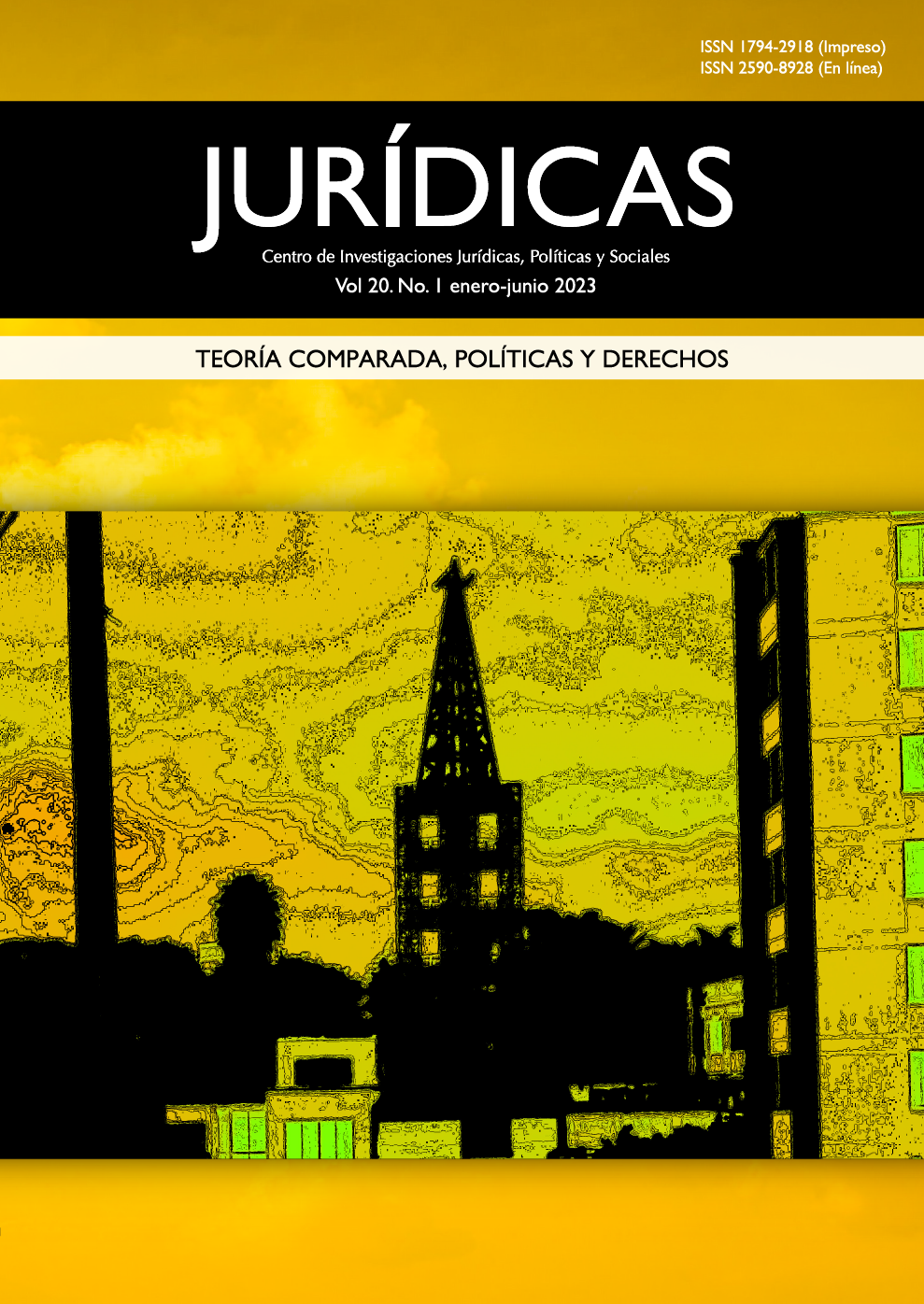Authors
Abstract
The aim of this paper is to show how the Law and Literature movement could influence judicial decisions in difficult cases, based on Vladimir Nabokov's Lolita, which is based on the interpretation that the protagonist of the work has been subjected to a non-consensual relationship with her stepfather. That is, there is a departure from the romantic and traditional point of view that has made a career in the art world on how to appreciate this literary work. To this end, the article was divided into three parts; the initial section develops the three essential aspects within the Law and Literature movement as proposed by Martha Nussbaum, emphasizing the attractions of the movement and the capabilities it gives to judges; the second part is focused on defining what a difficult case is and its characteristics. Finally, the last point of the text moves away from the "pink" and usual interpretation of Lolita and then adopts the approach of the abuse in Nabokov's novel. The important issue here is that such a literary piece can influence a judge's decisions in resolving similar difficult cases.
References
Botero, A. (2014a). ¿La lectura literaria forma buenos jueces? Análisis crítico de la obra Justicia Poética.Jure Anáhuac Mayab, 3(5), 34-91.
Botero, A. (25 de febrero de 2014b). ¿La literatura forma buenos jueces? [video]. YouTube. https://www.youtube.com/watch?v=VOvDdlBC4QQ
Colombia, Congreso de la República. (24 de julio de 2000). Ley 599 de 2000. Por la cual se expide el Código Penal. Diario Oficial n.o 44.097. https://www.funcionpublica.gov.co/eva/gestornormativo/norma.php?i=6388
Colombia, Congreso de la República. (8 de noviembre de 2006). Ley 1098 de 2006. Por la cual se expide el Código de la Infancia y la Adolescencia. Diario Oficial n.o 46.446. http://www.secretariasenado.gov.co/senado/basedoc/ley_1098_2006.html
Colombia, Corte Constitucional. (10 de mayo de 2006). Sentencia C-355/06 [MP. Jaime Araújo Rentería y Clara Inés Vargas Hernández]. https://www.suin-juriscol.gov.co/viewDocument.asp?ruta=CorteConstitucional/20046872
Colombia, Corte Constitucional de Colombia. (28 de febrero de 2008). Sentencia T-209/08 [MP. Clara Inés Vargas Hernández]. https://www.funcionpublica.gov.co/eva/gestornormativo/norma_pdf.php?i=30206
Dworkin, R. (1989). Los derechos en serio. Ariel.
Dworkin, R. (2005). Cómo el derecho se parece a la literatura. En C. Rodríguez (Comp.), La decisión judicial. El debate Hart - Dworkin (pp. 143-177). Siglo del Hombre Editores - Universidad de los Andes.
Gadamer, H.-G. (2003). Verdad y método I. Sígueme.
Hart, H. L. A. (1961). El concepto de derecho. Abeledo Perrot.
Hart, H. L. A. (2000). Post scríptum al concepto de derecho. Universidad Nacional Autónoma de México.
Nabokov, V. (1991). Lolita. Anagrama.
Nussbaum, M. (1995). Justicia poética. Andrés Bello.
Nussbaum, M. (2014). Emociones políticas. Planeta.
Nussbaum, M. (2016). El cultivo de la humanidad. Planeta.
Romi, J. C. y García, L. (2004). Algunas reflexiones sobre la pedofilia y el abuso sexual de menores. Cuadernos de Medicina Forense, 3(2), 93-112.
Searle, J. (1978). Cómo derivar ‘debe’ de ‘es’. En P. Foot (Comp.), Teorías sobre la ética (pp. 151-170). Fondo de Cultura Económica.
Smith, A. (1997). Teoría de los sentimientos morales. Alianza.

 PDF (Español)
PDF (Español)
 FLIP
FLIP


























